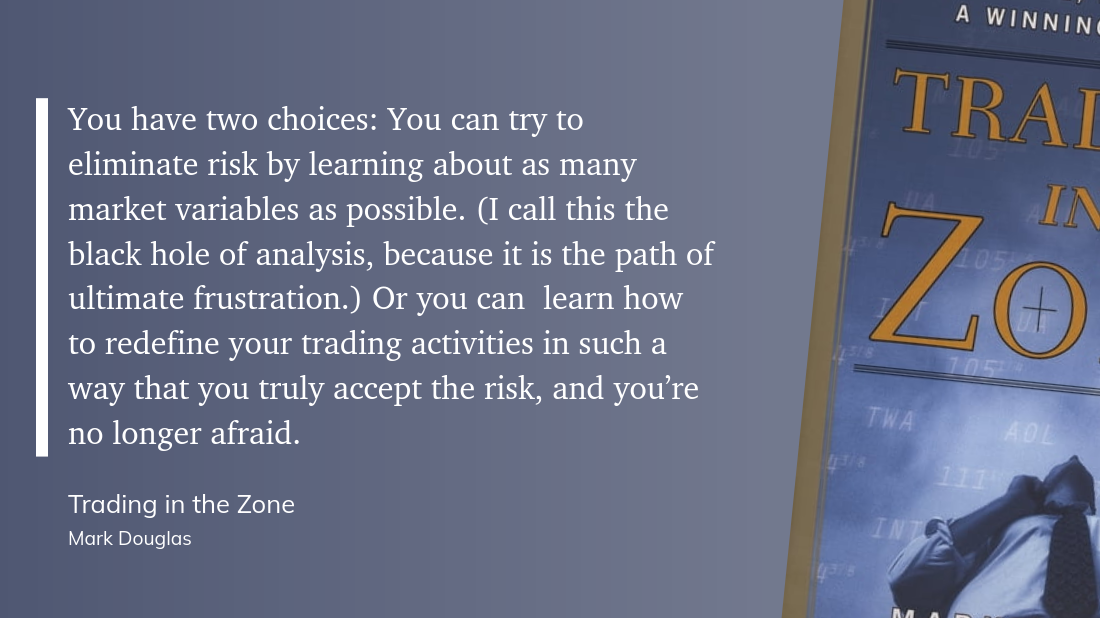Predicting the market
As I make my way through Jack Schwager's "Market Wizards" series, I'm constantly reminded that predicting the market is a fool's errand. What do we do instead? 🤔

Happy Monday! I'm working through the third book in the Market Wizards series from Jack Schwager. This is a great series and the third edition, Stock Market Wizards: Interviews with America's Top Stock Traders, centers around the time of the crash of the tech boom in 2000.
All investments come with significant risks, including the loss of all capital. Please do your own research before investing, and never risk more than you are willing to lose. I hold no certifications or registrations with any financial entity.
This post isn't full of charts and data, but it's a good reminder for how to trade the markets with less stress.
Everyone is in the market for different reasons
Something I learned over time is that every market, whether it's bonds, equities, currency, or something else, there are tons of participants. Every trader and investor in these markets is in that market for a different reason.
Some may be in the market for years in a retirement account that gradually receives regular deposits. Some may be in the market for only a few moment as they scalp quick price movements in an ETF.
Some people are primarily long. Some are primarily short. Some are a combination of both. Some flip between being short and long based on market movements.
You may see an earnings report and you see all the great things a company is doing. Someone else might examine that report and identify where a company might be doing well from one angle, but it's losing ground to its peers.
Many traders use charts. Others use fundamentals. Some combine both together. Even with charts, it's difficult to find two traders who use the same indicators. Even if they do use the same ones, they likely interpret them in different ways. As an example, I see a high RSI indicator as a source of strength while others will say the stock is overbought and should come down. 🤷♂️
Predicting markets is difficult and stressful
I attended a Tastytrade event in Houston earlier this year and Tom Sosnoff talked a while about artificial intelligence (AI) and how Tastytrade has been working with a university for many years to determine if AI could potentially create a better trader and predictor of the future. Long story short, it's no better than a coin flip so far.
Some of the points he brought up include:
- Computers cannot quantify risk adequately. Sure, they can calculate a percentage chance that a trade will succeed, but they aren't able to really quantify the risk involved.
- AI requires training, and that means training it on things that happened in the past. This leads the AI down the same path to biases that humans have. How many times have you heard "past returns do not guarantee future profits"? We can train computers on what happened in the past, but it makes them no better than humans at making predictions for the future.
One of my favorite arguments is around the wild price fluctuations around earnings. I'd argue that if you had the full earnings report of your favorite stock in your hands a week before the earnings call, you would have a difficult time predicting where the price would go after the earnings release.
What do we do instead?
This has been a big question for me. If I can't predict the market, how do we get an edge and make good choices? Fortunately, the Market Wizards books offer some guides here:
- Some trades are going to be losers. That's guaranteed. Embrace that.
- Focus on your profit from the winning trades and cut your losers quickly. A high win rate doesn't mean a lot if your losers are larger than your winners.
- Keep position sizes at a reasonable level. Most of the traders in the books use a position size of 1-3% as a maximum for a particular position. Watch out for correlated trades, such as two separate trades in the same sector.
- Whatever system you use, stick to it. Be consistent. Your system should have rules for entry criteria, exit criteria, and money/risk management.
- If the market isn't offering you any patterns that meet your system's requirements, don't feel like you need to trade anyway.
Wrapping up
I'm reminded of this quote:

The best traders in the market know that some of their trades will win and others will not. Following a system consistently with good risk management ensures that losing trades become a bump in the road rather than a crisis.
Good luck to everyone today. 🍀


Discussion